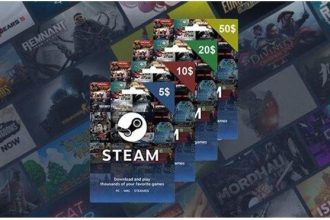Washington State’s beautiful landscapes and vibrant communities make it a great place to live. However, maintaining this beauty involves a lot of regulations, especially when it comes to junk cars. Understanding these regulations is crucial for both car owners and businesses involved in car disposal and recycling.
- Understanding Washington’s Junk Car Regulations
- Title Transfer Requirements
- Reporting the Sale
- Environmental Regulations
- Licensing and Permits
- Best Practices for Compliance
- Verify Buyer Credentials
- Properly Transfer the Title
- Drain Fluids and Remove Hazardous Materials
- Benefits of Proper Junk Car Disposal
- Environmental Protection
- Community Well-being
- Selling Your Junk Car for Cash in Washington
- Conclusion
This article will explore the key regulations and offer best practices to ensure compliance and maximize the benefits of properly disposing of junk cars in Washington State.
Understanding Washington’s Junk Car Regulations
Washington State has implemented several regulations to manage the disposal of junk cars. These regulations are designed to protect the environment, ensure public safety, and promote efficient recycling practices. Here are some key aspects of these regulations:
Title Transfer Requirements
When you buy a used car, transferring the title is a critical step. In Washington, the seller must complete and sign the back of the title and give it to the buyer. Both parties should keep copies for their records. If the title is missing or damaged, a replacement can be obtained through the Washington State Department of Licensing (DOL).
Reporting the Sale
Washington law requires sellers to report the sale of a vehicle to the DOL within five days. This can be done online, by mail, or in person at a DOL office. Reporting the sale protects the seller from future liabilities associated with the vehicle, such as parking tickets or accidents.
Environmental Regulations
Junk cars can pose significant environmental hazards if not disposed of properly. Washington State mandates that all hazardous materials, such as oil, coolant, and batteries, be safely removed and disposed of before a car is scrapped. Salvage yards and recycling facilities must comply with state and federal environmental regulations to prevent soil and water contamination.
Licensing and Permits
Businesses that buy and sell junk cars, including salvage yards and towing companies, must be licensed by the state. These businesses are subject to regular inspections to ensure compliance with environmental and safety standards. Additionally, they must maintain records of all transactions, including the acquisition and disposal of junk cars.
Best Practices for Compliance
Compliance with Washington’s junk car regulations is essential to avoid legal issues and penalties. Here are some best practices to ensure you stay on the right side of the law:
Verify Buyer Credentials
When selling your junk car, ensure that the buyer is licensed and reputable. Ask for their business license number and check it against state records. Reputable buyers will have no issue providing this information and will handle all necessary paperwork for the transaction.
Properly Transfer the Title
Always complete the title transfer process accurately. Double-check that all information is correct and that both you and the buyer have signed the title. Keep a copy of the title transfer for your records and report the sale to the DOL promptly.
Drain Fluids and Remove Hazardous Materials
If you’re handling the disposal of the car yourself, make sure to drain all fluids and remove hazardous materials properly. This includes oil, transmission fluid, brake fluid, and coolant. Batteries and tires should also be removed and disposed of according to local regulations. If you’re unsure how to do this safely, consult with a licensed salvage yard or recycling facility.
Benefits of Proper Junk Car Disposal
Properly disposing of a junk car in Washington State offers numerous benefits beyond regulatory compliance. These include environmental protection, financial gains, and community well-being.
Environmental Protection
Junk cars contain various hazardous materials that can harm the environment if not handled correctly. By following state regulations and best practices, you help prevent soil and water contamination, protect wildlife, and reduce pollution. Recycling also conserves natural resources by reusing metals and other materials.
Community Well-being
Abandoned and improperly disposed of junk cars can become eyesores and safety hazards in communities. By disposing of your junk car responsibly, you contribute to the overall well-being and aesthetics of your neighborhood. This helps maintain property values and ensures safe, clean public spaces.
Selling Your Junk Car for Cash in Washington
If your car is no longer usable or you simply want to sell your junk car in Washington, consider selling it to specialized junk car buyers. These buyers are typically licensed and adhere to all state regulations. They offer cash for junk cars and take care of everything from towing to handling the paperwork. This hassle-free solution ensures that your car is disposed of properly and you get some money in return.
Conclusion
Understanding and complying with Washington’s junk car regulations is crucial for protecting the environment, avoiding legal issues, and maximizing the benefits of disposing of a junk car. By following best practices such as verifying buyer credentials, properly transferring the title, removing personal belongings, and ensuring the safe removal of hazardous materials, you can ensure a smooth and profitable transaction.













